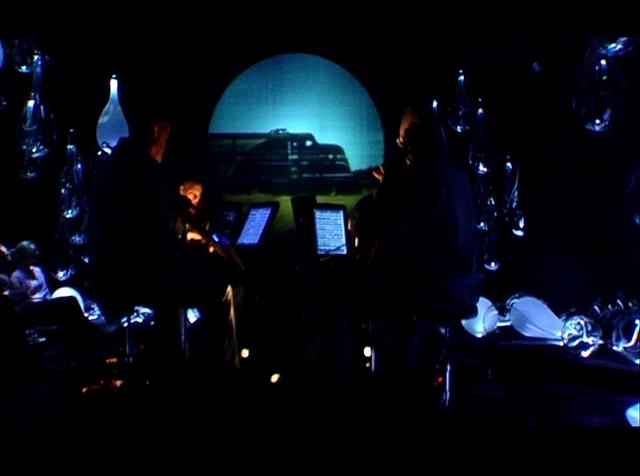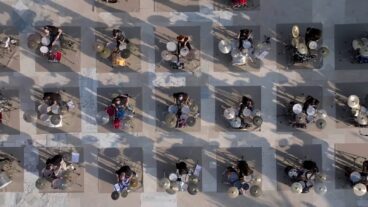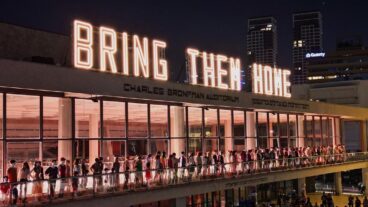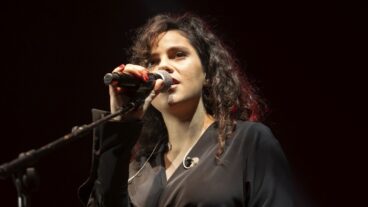Steve Reich’s Different Trains rumbled into town this past week and the results were stunning – one of the must-see concerts of an already overflowing Jerusalem summer.
Reich is the godfather of the modern minimalist music scene, patron saint to more art/pop-oriented artists like Phillip Glass and Brian Eno. His compositions are highly repetitive: the trick is to find the tiny variations that seep through his wall of rhythmic sound. The best way to describe a Reich piece is to listen – check out the YouTube video below.
Different Trains by Steve Reich at The Jewish Theatre Stockholm
Reich wrote Different Trains, which won a Grammy Award for Best Contemporary Composition, in 1988 for string quartet with electronic voice. What that means is that four musicians play viola, two cellos and sampled violin (on what looks like a hi-tech drum set) while the voices on tape repeat phrases throughout the performance. The voices are then mirrored by the instruments: every time a certain man speaks, it’s doubled by the viola; every time a woman speaks, it’s doubled by a cello, Reich says an interview included in the 84-page full color booklet that’s given out to the audience.
Different Trains is at its heart a Holocaust composition. The trains initially take the listener across the U.S. – “from Chicago to New York” intones one of the voices – but quickly, we are transported to Europe and we realize that the speakers are Jewish, recounting snippets of testimony from the Second World War. Sound effects of trains swirl through the room, bouncing back and forth across the speakers. The performers themselves wear costumes that could either be train conductor uniforms…or prison camp pajamas.
Sitting in the audience, I was taken back to my college days at Oberlin College when I took a course in electronic music and we studied Reich’s early work. But I’d never heard it played live until now.
Different Trains is being performed as part of the Jerusalem Season of Culture in a cavernous room inside the Tower of David Museum that has never been open to the public before. You can see the tall arches of the space – the kishle, as it’s called, was used as a prison in the days of the Ottoman Empire and is surrounded by moat – but the rest is draped in black.
Inside there are tens of oversized glass sculptures, shaped like mis-formed light bulbs or perhaps tears from an unseen giant. Some are transparent, others opaque. The artist, Ann Wahlstrom, was a student of world-renowned glass artist Dale Chihuly.
The musicians sit in the midst of the glass space, on a podium with their backs to the audience. On either end of the rectangular room are screens where video plays images of trains juxtaposed with scenes from the Holocaust. It’s not meant to titillate; nothing is graphic but the message is nevertheless unnerving.
The entire production was put together by Pia Forsgren, director of the Jewish Theater in Stockholm. Forsgren took Reich’s original standalone work, created the video herself and designed the space with Wahlstrom’s glass installation.
She then hired a Swedish ensemble – the Fleshquartet – to perform the piece, and commissioned them to create their own companion composition, “Tears Apart,” which serves both as a commentary and complement to the swirling repetitive style of Different Trains, while adding a more accessible melodic line. At one point, the performers leave their instruments to “play” the glass sculptures. It’s mesmerizing. The entire show, with both pieces, runs just over an hour.
Forsgren’s visual interpretation of Different Trains was performed 62 times at The Jewish Theater in Stockholm during the 2008-2009 season. It is playing until July 21 in Israel. Tickets are pricey and seats limited, but it’s well worth the journey – don’t let this train leave the station without booking your seat.














